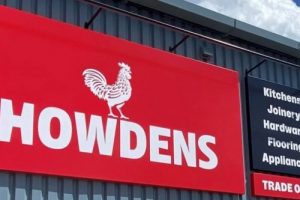Profits tumble at Cosalt

MARINE safety group Cosalt has seen profits fall sharply during a year in which its customers reined in spending.
The Grimsby-based group was forced to go to the market in August to raise £17m to avoid breaching banking covenants, and this week it said it would not be paying a final dividend in a bid to conserve cash.
During the 53 weeks to November 1 turnover rose 2.6% to £107.8m but pre-tax profits fell by 24% to £5.49m.
After taking into account special items relating to disposals, revaluations and restructuring, the group recorded a pre-tax loss of £3.3m, compared with a £1.4m profit last time.
But after exiting the schoolwear and holiday homes businesses, and cutting costs, chairman David Ross said the business was now well-placed to make progress as a specialist provider of safety equipment and services for the offshore and marine industries.
He said: “Last year was one of consolidation for our core businesses. As a result of our fundraising in August we have established a stable platform from which to take the business forward. The group continues to make progress towards its strategic objective of becoming a specialist provider of critical safety equipment and services for the offshore and marine industries.”
The group said it had met a string of key restructuring objectives during the year and eased pressure on long-term capital by raising £17m. It also won a number of key contracts including a three-year agreement to supply BP with lifting equipment worth up to £4.5m a year. In addition the group cut net debt by £8m to £18.6m and made annualised cost savings worth £3m.
Falling oil prices in 2009 prompted Cosalt’s customers in the sector to defer spending while a reduction in the volume of container traffic also hampered progress in the marine market.
The group said conditions in both sectors remained challenging in the first half of 2010 but new contract wins will contribute to an improvement in trading in the second half.
In addition to tough trading conditions the company has also seen its pension deficit widen from £6.3m to £11.8m which it blamed on falling bond yields. “Addressing the pension deficit is of primary importance for the group”, it said.







